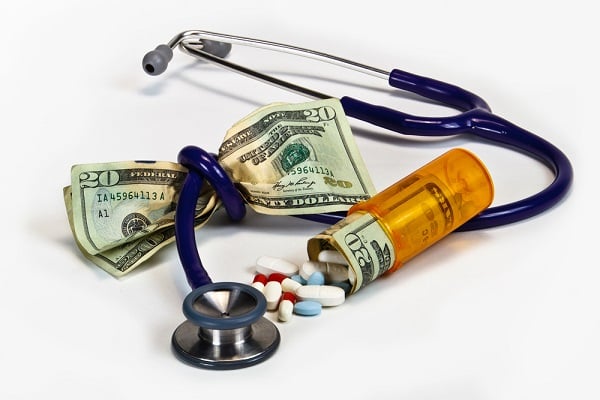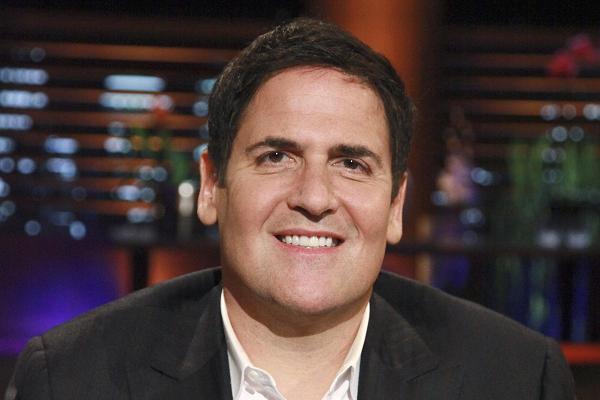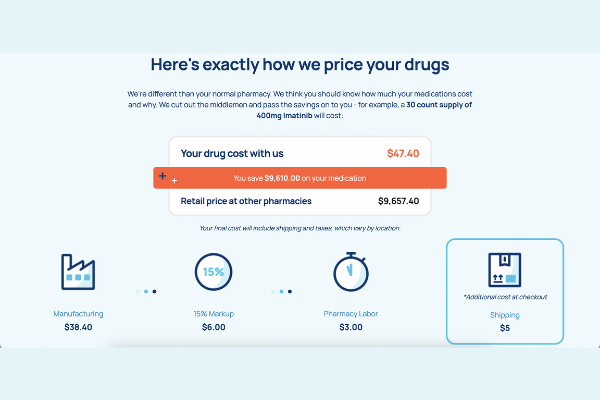Extortionately expensive American drugs now affordable?
Share:

I find the American healthcare system frankly disgusting. Life-saving drugs are marked up by hundreds, sometimes thousands or even tens of thousands, of dollars to exploit incredibly vulnerable people out of every penny they’ve got.
Even the average American spends a ludicrous amount on prescription drugs, averaging $1,200 per year since 2018, and this sum has undoubtedly risen since. This doesn’t even consider the price of hospital appointments, health insurance, or other related costs.

In the states, each person pays a shocking average of $12,530 per year on their healthcare. This is nearly $5,000 more than Switzerland, the country in second place, and $7000 over the UK.
Keep in mind that both of these countries have universal healthcare, whereas the US does not. I’ve never been so grateful for the NHS.
Recommended Reading: NHS workers’ 1% pay rise is a national disgrace
Even with health insurance, poor enough health stemming from sheer bad luck can financially cripple most Americans. This is due to the horrific way that drugs are priced in the states. Markups of hundreds or thousands of dollars are everywhere within the industry. And they’ve been like that since the end of world war two.
Therefore you may reasonably wonder why the American healthcare system has remained so actively predatory to its own people for so long. The answer, as always, is capitalism.
The US healthcare industry comprises 19.7% of the nation’s GDP. When ⅕ of their money is generated by this $4.1 trillion industry, you can see why power-hungry politicians aren’t keen to sacrifice this for the sake of the 332 million people they were elected to improve the lives of.
If politicians aren’t improving the situation, then who is?

The Mark Cuban Cost Plus Drugs Company seems to be making a positive impact. They aim “to dramatically reduce the cost of drugs” and “to introduce transparency to the pricing of drugs so that patients know they are getting a fair price.“
This mission statement from the namesake, and main financial backer, of the company, which only went live to the public in January of this year, sets a lofty goal.
How well have they achieved this so far?
I counted 392 products for sale on the website. All of these are generic brand drugs with savings ranging from $4 to as high as $1.038.50 for a drug named Abacavir.
The website doesn’t host that many separate products, as there are many separate listings for the same drug. It’s formatted this way to showcase the price comparison between several named brands and their generic counterparts.
That covers the dramatic reduction in price part of the statement perfectly. The stark comparison between what traditional retailers charge for various drugs, and what Cost Plus are charging is truly shocking.
Recommended Reading: Male birth control halted…

There’s quite a range in what’s on offer: from birth control pills to anti-parasitic medications, to hair and skin treatments. Cost Plus stocks pills, tablets, gels, creams, inhalers, all sorts.
Transparency
In terms of transparency, the website clearly and proudly displays exactly how its pricing system works.

The company either purchases a drug directly from its manufacturer or makes the product themselves. Then, they add a 15% markup to fund their business.
This often equates to only a few dollars per product, a mercifully low amount compared to the hundreds of dollars other companies add on. Then a $3 dollar flat fee is added to pay the dispensing pharmacy. A $5 shipping fee is added to each order, then it’s shipped out.
Future growth
Seeing all this, I’d say the company has well-achieved its aims of transparency and cheaper prices.
Of course, as a new company, they only have a limited range of products. Commonplace and vital medications like insulin are yet to be added to their repertoire. Luckily, they appear eager to expand much further, with plans for a new manufacturing site to be built by the end of this year.
Recommended Reading: Type 1 Diabetes: What you need to know
A few enormous, apathetic corporate overlords still dominate the American healthcare industry. CVS, Express scripts, and OptumRx control over 80% of pharmacy benefit management market shares. (This is the industry that sets the artificially inflated, sky-high prices of prescription drugs).

However, the situation is slowly beginning to improve. Mark Cuban is a billionaire and shrewd businessman. If even a primarily profit-driven man, who can easily afford his own healthcare fees, is inclined to support this shift in the industry, then surely many other influential players will soon follow suit.
